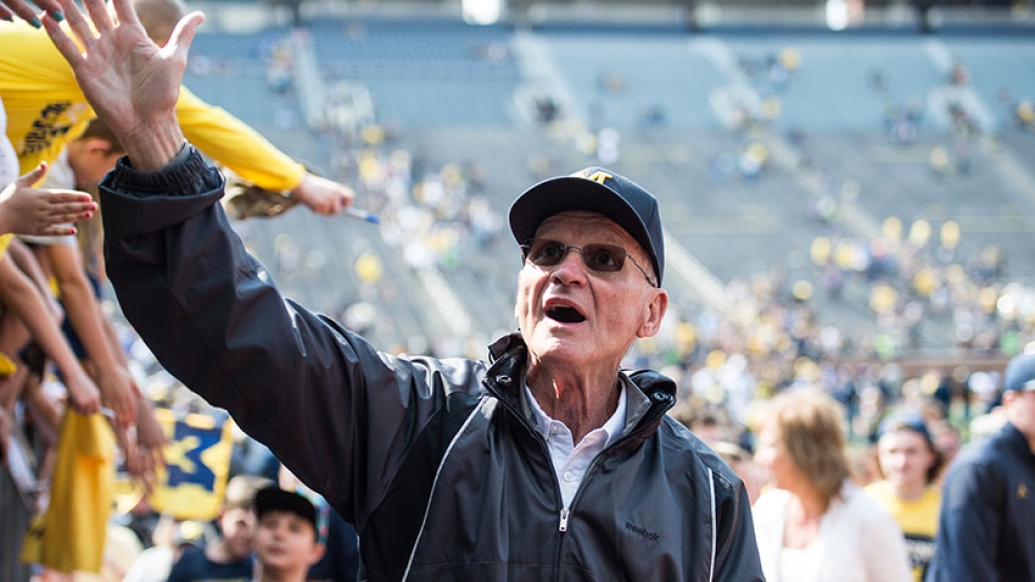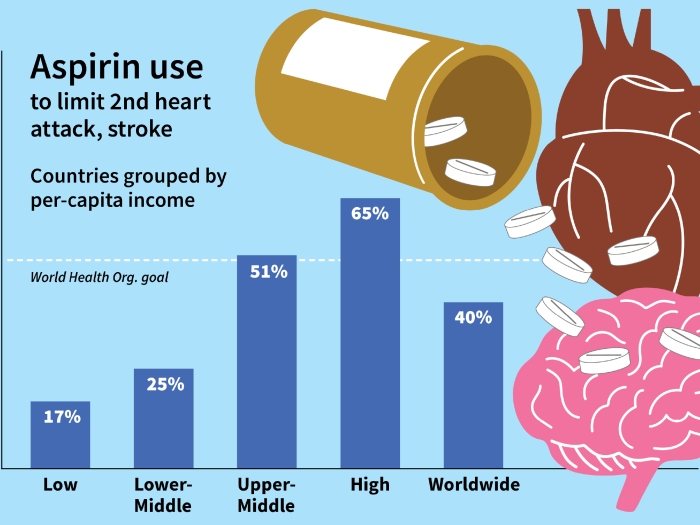The former assistant U-M football coach, and father of current coach Jim Harbaugh, says heart health should be a focus for all ages.
9:40 AM
Author |

Nearly three years after a heart attack and quadruple bypass surgery, retired football player and well-known coach Jack Harbaugh says he simply feels grateful.
And the former University of Michigan football assistant coach — whose son, Jim, now leads the Wolverines — knows his past habits aren't perfect.
"I was the classic 'things not to do,'" says the elder Harbaugh. "I had no doctor, I was taking no medication whatsoever… I knew I was putting on weight but I didn't address it."
The health scare prompted the 79-year-old to make some important changes in his life to ensure he can keep enjoying precious time with his grandchildren and his wife, Jackie.
We should really be conscious of our healthy heart, and taking care of ourselves, at a younger age.Jack Harbaugh, retired football player and coach
In honor of Heart Month, Harbaugh, now a patient at the U-M's Frankel Cardiovascular Center, spoke about his surgery and the importance of a heart-healthy lifestyle.
What do you remember about your heart attack?
Harbaugh: It was April 2016, the night of the national championship basketball game between Villanova and North Carolina. My wife and I were in Wisconsin, sitting, watching the game, and all at once I got this feeling in my chest, like a fist right at the breastplate.
It was something I had never experienced before, and I told Jackie, "We need to go to the hospital." She drove me there at 8:30 at night.
A couple of days before, I felt some indigestion while walking. I walked again the next day and had the same experience. I would come home and it would go away.
By 4 a.m., I was awakened by a doctor in a white gown, with a stethoscope over his shoulder, saying they'd found some enzymes in the tests that indicated I'd had a heart attack … Two days later, we had the (quadruple bypass) surgery …
Thank goodness I listened to my best instincts and took care of it that night and got to the hospital.
LISTEN UP: Add the new Michigan Medicine News Break to your Alexa-enabled device, or subscribe to our daily audio updates on iTunes, Google Play and Stitcher.
How did you handle recovery from major heart surgery?
Harbaugh: My friends who had gone through bypass surgery told me stories, and I was expecting the worst. All the things I had been told, I kind of multiplied by 10. I can honestly say that I didn't experience what I thought I was going to experience…
I really looked at it like a challenge. I'd ask a nurse, "When's the first time someone's gone all the way around that hallway?" My goal was to try to beat that.
The first day, I walked maybe 25 or 30 steps, and then an hour or so later I wanted to try again and I was able to move the mark a little bit … I wanted to set some goals for myself and see if I could get back as quickly as I could.
In cardiac rehab, we had lectures about eating habits and the mental part of what we were going through. I became very studious about listening and absorbing, and trying to put as much into practice as I could. I was scared; I had 10 grandchildren at that time.
What would you say to your pre-heart-attack self?
Harbaugh: As you get older and the body begins to change to some degree, you really need to be aware.
There was no question I'd put on about 15 or 20 pounds over the years, just a pound at a time. When I sat down to eat, I would eat a second helping, and probably didn't eat as many fruits and vegetables as I should have.
I did exercise, and thank goodness I did. Four or five times per week, I would walk or go to the gym and do a bit with weights, and I think that prevented more trouble when I experienced the heart attack.
MORE FROM MICHIGAN: Sign up for our weekly newsletter
What advice do you give young people about heart health?
Harbaugh: Find out as much as you can about your heart and your health.
After this was all over, my now-cardiologist Kim Eagle, M.D., gave me the book he wrote with Bo Schembechler, The Heart of a Champion. I realized there was so much about the heart and health of the heart that I didn't know.
As I reach an older age, I regret now that I didn't know more about the intricacies of heart health and how you can prevent the experience I went through with diet, exercise and being careful with your weight.
In Wisconsin, the cardiologist told me the plaque buildup in my arteries most likely started when I was around 12 years old … it didn't just come on in a month or a year or 10 years.
We should really be conscious of our healthy heart, and taking care of ourselves, at a younger age… It is important to take time away from stress and take time to be with your family.
Listen to Jack Harbaugh and his cardiologist, Kim Eagle, M.D., discussing cardiovascular health on the Michigan Insider: http://michmed.org/ejbW3.

Explore a variety of healthcare news & stories by visiting the Health Lab home page for more articles.

Department of Communication at Michigan Medicine
Want top health & research news weekly? Sign up for Health Lab’s newsletters today!





